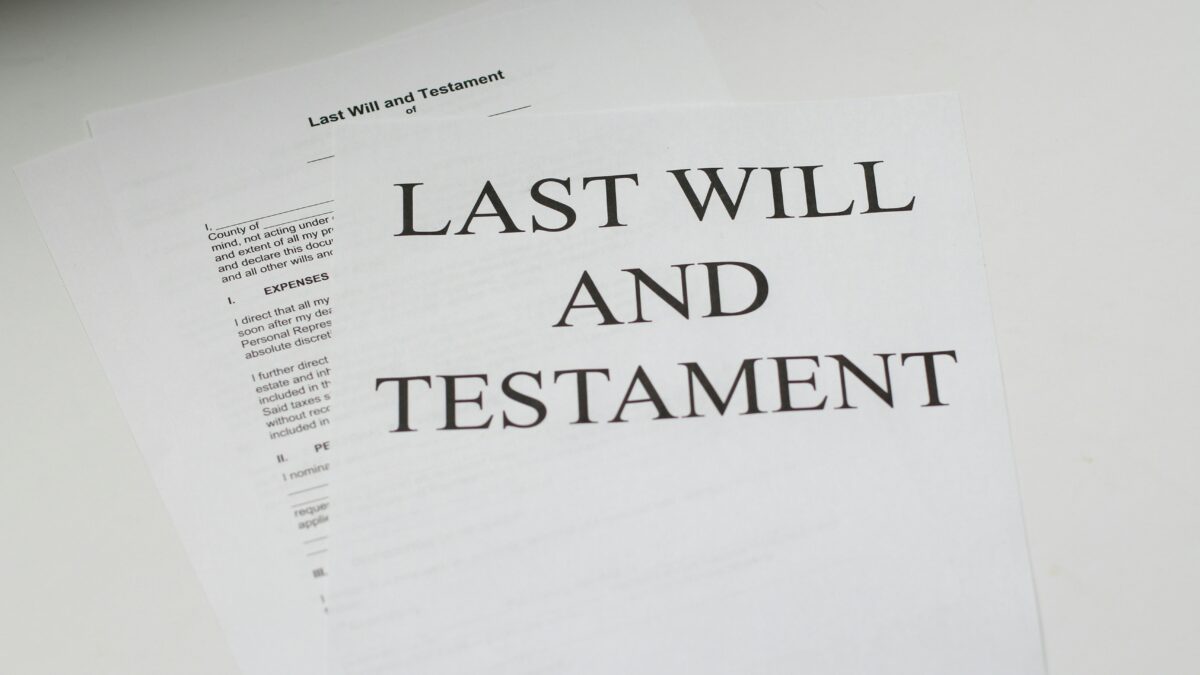“Allow electronic wills” say the Law Commission

The Law Commission has recommended significant reforms to modernise Wills legislation in England and Wales, including the introduction of electronic wills. These proposals, published on 16 May 2025, aim to make will-making more accessible and to protect vulnerable individuals from exploitation.
Revolutionary Changes to Electronic Will-Making
A key recommendation is to allow electronic wills under secure conditions, reflecting technological advancements and the increased use of digital documents. The Commission suggests that electronic wills should be as secure as paper ones, potentially requiring registration on a central database or the use of advanced electronic signatures. The pandemic particularly highlighted the advantages of being able to witness wills remotely, demonstrating the practical need for digital solutions.
The Law Commission emphasises that electronic wills must meet stringent safeguards to ensure authenticity and prevent fraud. These include secure digital signatures, verified identity checks, and reliable storage systems to prevent tampering or unauthorised alterations. Rather than simply applying existing requirements from the Wills Act 1837 to electronic formats, the Commission recommends introducing “bespoke requirements” specifically designed for digital wills.
Electronic wills would need to provide functionally equivalent protection to traditional paper wills, ensuring they offer strong evidence of the testator’s intentions whilst cautioning them about the serious nature of will-making. The proposed system must also protect testators from fraud and undue influence, channelling them into well-understood and standard methods of accomplishing their wishes.
Addressing Predatory Marriages and Undue Influence
Another significant proposal is to abolish the rule that automatically revokes a will upon marriage. This change aims to prevent “predatory marriages”, where individuals marry vulnerable people to gain control of their assets. The Commission found that most people are unaware of this automatic revocation rule, making them particularly vulnerable to exploitation.
The Law Commission also recommends that courts be allowed to infer undue influence based on surrounding evidence, rather than requiring direct proof. This would make it easier to challenge wills made under coercion, providing better protection for vulnerable testators who may have been pressured into making decisions that don’t reflect their true intentions.
Additional Modernising Reforms
The proposals extend beyond electronic wills to include several other significant changes. The minimum age for making a will would be reduced from 18 to 16 years, aligning with other areas of law where 16-year-olds can make important decisions. This change would be particularly beneficial for terminally ill children who may not have active parental involvement in their lives.
The Commission also recommends updating the test for testamentary capacity to align with the Mental Capacity Act 2005, replacing the outdated Banks v Goodfellow standard that dates back over 150 years. This modernisation would bring consistency to capacity assessments across different areas of law.
Courts would gain enhanced discretionary powers to accept wills that don’t meet all formal requirements, provided there’s strong evidence of the testator’s genuine intentions. This change could reduce litigation over technical formalities whilst ensuring that clear testamentary wishes are respected.
Industry Response and Concerns
Whilst these reforms have been welcomed for their potential to modernise the law, concerns have been raised about the risks of fraud and undue influence with electronic wills. The Law Society emphasises the need for appropriate safeguards and the continuation of paper-based will-making options to ensure inclusivity. A survey of 895 solicitors specialising in wills and probate found that whilst 50% were likely to support technology in will-writing, many expressed concerns about increased fraud risks.
Legal professionals acknowledge that electronic wills could introduce new challenges requiring technical expertise. Those specialising in contentious probate may need to develop IT skills to handle disputes over digital document authenticity. However, the potential benefits include streamlined will production and, provided systems offer clear records and authentication, potentially reduced disputes over validity.
Government Consideration and Timeline
The government is now considering these recommendations, which, if implemented, would constitute the most significant overhaul of wills law since the Wills Act 1837. The Law Commission has produced a draft bill for an entirely new Wills Act to provide a single, modern piece of legislation governing all aspects of will-making.
Under the Protocol between the Lord Chancellor and the Law Commission, the responsible Minister must provide an interim response within six months of the report’s publication and a full response within twelve months. The government has welcomed the report as an important and timely review, though implementation will require careful parliamentary consideration.
Ready to Secure Your Family’s Future with a Professionally Drafted Will?
Why choose professional legal advice for your will?
- Expert guidance on complex family situations and asset protection
- Full regulatory protection with professional indemnity insurance
- Comprehensive capacity assessments to ensure your will is legally valid
- Proper execution procedures to prevent costly mistakes that could invalidate your will
- Secure storage solutions with regulated firms providing continuity of service
Unlike unregulated will writers who may limit their liability to just the cost of the will, our qualified solicitors provide the expertise and protection your family deserves. With 65% of people mistakenly believing their affairs are “simple” when they’re complex, professional legal advice ensures nothing is overlooked.
Take action today – your family’s financial security depends on getting your will right the first time. Contact our Harrow-based family law team for a confidential consultation about your will-writing needs. We’ll ensure your wishes are properly documented, legally sound, and ready for whatever changes the future may bring to wills legislation.
Call us now on 020 3794 8280 to book your will consultation. Don’t wait until it’s too late – protect your family’s future with professional legal expertise.


